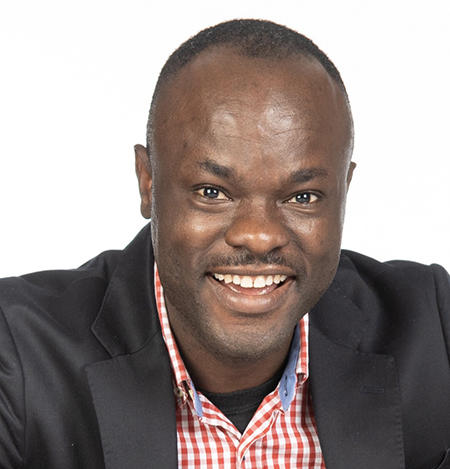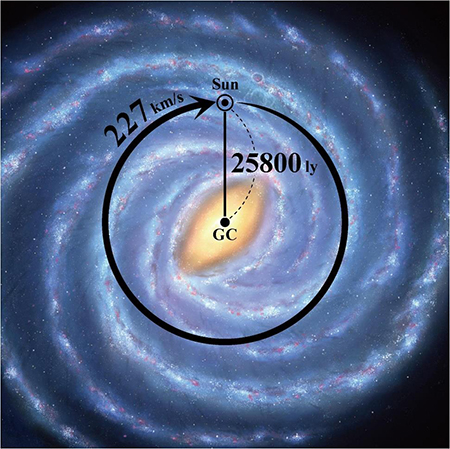A new study has lifted the veil on some of the mysteries of the Milky Way. It has found that the Earth is moving faster than it used to and is nearly 2 000 light-years closer to the black hole in the centre of the Milky Way Galaxy.
This is according to new data, documented over a period of 15 years, by the Japanese radio astronomy project, VLBI (very long baseline interferometry) Exploration of Radio Astrometry (VERA.)
A North-West University academic, Prof James Chibueze, is the only researcher from Africa who has made contributions to this specific VERA finding.
Prof Chibueze, an associate professor at the NWU’s Centre for Space Research since 2019, is an avid promoter of radio astronomy and astrophysics.
He champions collaboration between the NWU and the South African Radio Astronomy Observatory, a facility of the National Research Foundation. Prof Chibueze was previously a commissioning scientist at the South African Radio Astronomy Observatory in Cape Town.
He says his most important contribution was the measurement of the parallax distances (the apparent difference in the position or distance of an object when viewed from different positions) to a number of star-forming regions and Mira class of pulsating stars in the Milky Way.
“My research focused on the measurement of the motion (kinematic) and dynamics of the Milky Way of which the key ingredient is accurate measurement of the distances and peculiar motion of astronomical sources.”
Prof Chibueze started with this research, which is still ongoing, since 2009, when he commenced his doctoral research at the Kagoshima University in Japan. He began collaborating with VERA in the same year.
He is passionate about his research. “I am excited that through this research, we are able to provide a glimpse into what our galaxy, the Milky Way, looks like and how close we are to its centre.”
He says it is difficult to fully understand the nature of a house if one is placed inside only one room of the house. “We live in the Milky Way and we can very easily study and explain the nature of other galaxies outside of ours, but it is harder to study our own galaxy from the inside.”
His next step is to observe more objects, particularly ones close to the central supermassive black hole, and to better characterise the structure and motion of the Galaxy.
Sole representative of Africa
Prof Chibueze says he is the only researcher from Africa who contributed to this specific study. He considers it a privilege to be part of it.
“Africa has great potential and immense talent. I welcome this opportunity to demonstrate that Africans are capable of achieving anything.”
He says although there may be negative perceptions about the continent, causing some people to consider some ventures as impossible, he believes it is only in their minds. “Nothing is impossible in the heart, to quote Sri Chinmoy; if we remain in the heart there will be no end to our progress. So, I look for every opportunity to show fellow Africans and students that all we need is to remain in the heart in our research endeavours.”
On a quest to solve the mysteries of the universe
Prof Chibueze says there are still many unanswered questions in astronomy and astrophysics.
“Happily, the South African government has invested heavily in the MeerKAT telescope in the Karoo, which is a precursor to the Square Kilometre Array (SKA) that is co-hosted in South-Africa.”
He says the MeerKAT is the best instrument in the world operating at its specific wavelengths. “Going forward, I will use this state-of-theart-facility to unravel more puzzles of our universe. Of course, I will continue to collaborate with colleagues on other continents as well.”
But what does all this mean for ordinary mortals?
Prof Chibueze says humans are naturally curious. “We want to understand our environment, our planet, our solar system, as well as its host galaxy and our universe. Every piece of the puzzle in our understanding of the Milky Way is important. Our new finding is crucial as it closes the gaps in our understanding of our home galaxy.”
His mantra is that sustaining success is twice as important as achieving it. “With the support of the NWU, I will do my utmost to continue to achieve and sustain success in research.”

Prof James Chibueze

Updated information shows that our solar system is 258 000 light years from the Milky Way Galaxy and its rotation velocity is 227 km/s.
Read the full press release from VERA.
